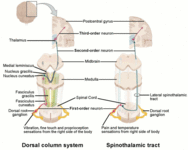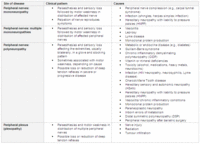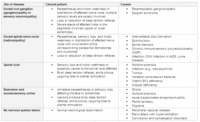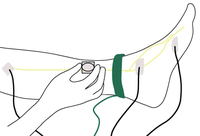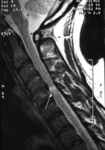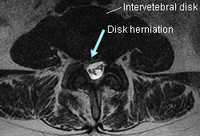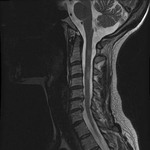Images and videos
Images
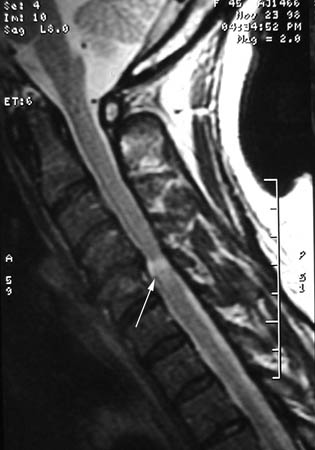
Assessment of paraesthesias
A single level of spinal cord compression with T2 changes, on cervical sagittal T2 sequence in the presence of symptomatic cervical spondylotic myelopathy (CSM)
From the collection of Professor Dennis Turner, Duke University Medical Center; used with permission
See this image in context in the following section/s:
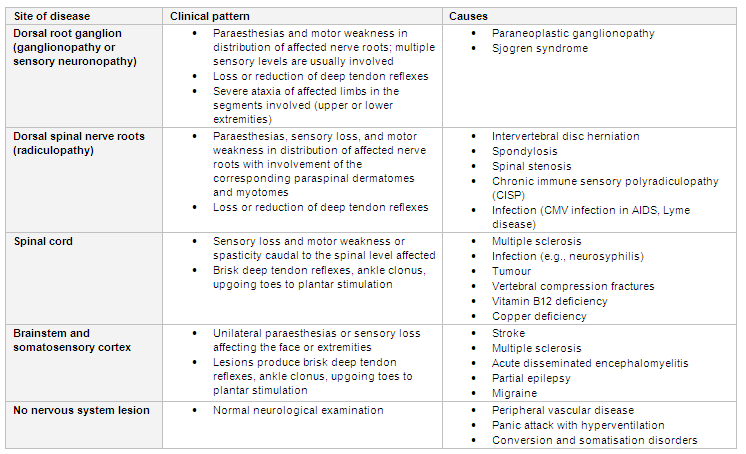
Assessment of paraesthesias
Central nervous system and non-neurological causes of paraesthesias according to the pattern and level of the lesion
Created by BMJ Knowledge Centre using information from Dr Caroline M. Klein
See this image in context in the following section/s:
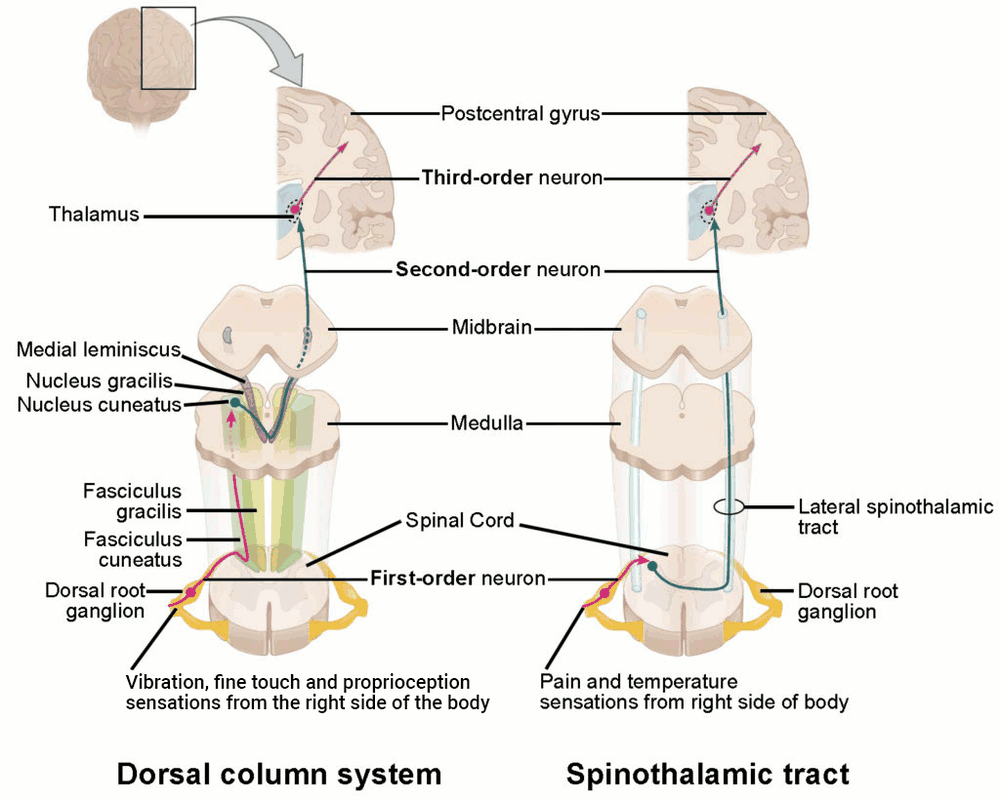
Assessment of paraesthesias
Ascending sensory pathways of the spinal cord. The dorsal column system and spinothalamic tract are the major ascending pathways that connect the periphery with the brain.
Betts JG, Young KA, Wise JA et al.Anatomy and physiology. Houston, TX:OpenStax; 2013 (CC BY4.0 - https://creativecommons.org/licenses/by/4.0/)
See this image in context in the following section/s:
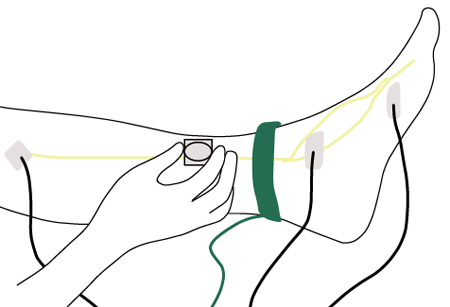
Assessment of paraesthesias
Nerve conduction testing of the lower leg
Created by the BMJ Group
See this image in context in the following section/s:
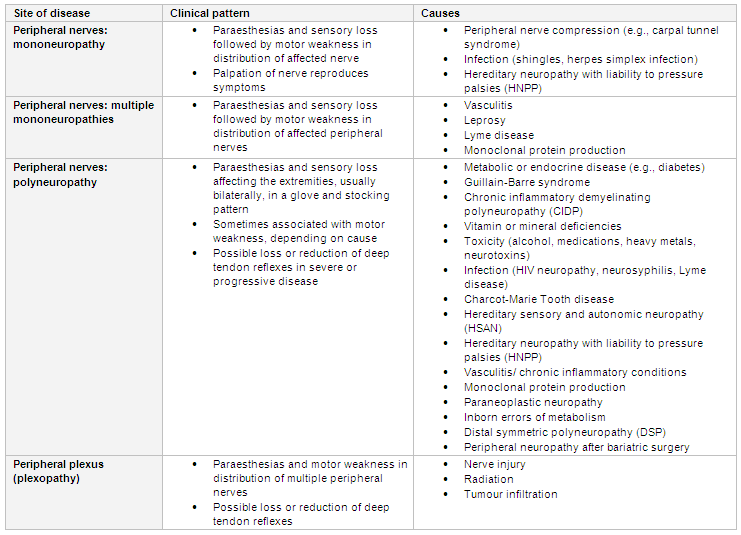
Assessment of paraesthesias
Peripheral nervous system causes of paraesthesias according to the pattern and level of the lesion
Created by BMJ Knowledge Centre using information from Dr Caroline M. Klein
See this image in context in the following section/s:

Assessment of paraesthesias
Axial T2-weighted MRI with broad-based lumbar disc herniation predominantly towards the right side
From the collection of Alexios G. Carayannopoulos, Lahey Clinic; used with permission
See this image in context in the following section/s:
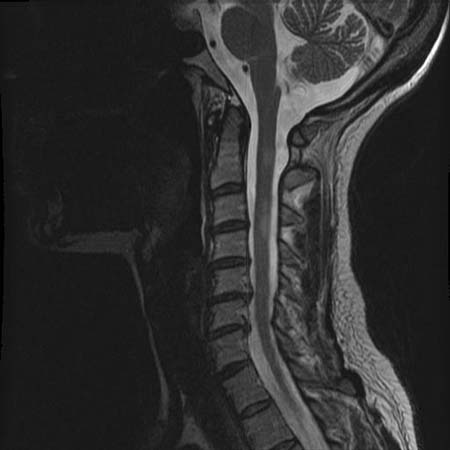
Assessment of paraesthesias
Sagittal T2-weighted MRI showing MS-related myelitis lesion
From the collection of Dean M. Wingerchuk, Mayo Clinic; used with permission
See this image in context in the following section/s:

Assessment of paraesthesias
Sagittal FLAIR images with typical MS lesions
From the collection of Lael A. Stone, Cleveland Clinic Foundation; used with permission
See this image in context in the following section/s:
Videos
 Diagnostic lumbar puncture in adults: animated demonstration
Diagnostic lumbar puncture in adults: animated demonstrationHow to perform a diagnostic lumbar puncture in adults. Includes a discussion of patient positioning, choice of needle, and measurement of opening and closing pressure.
Use of this content is subject to our disclaimer
